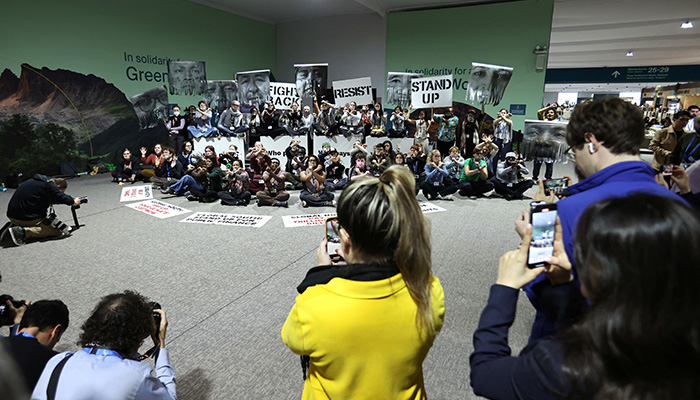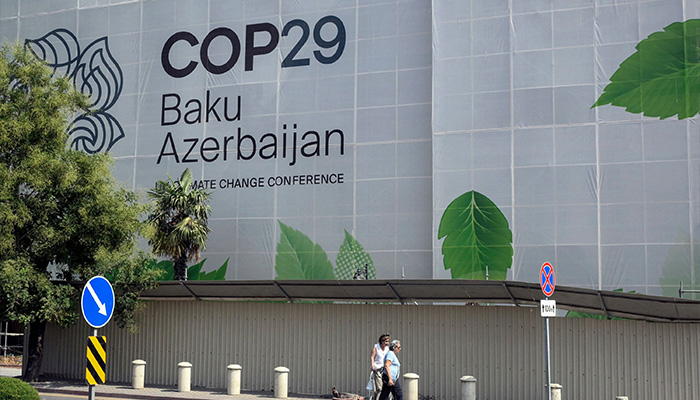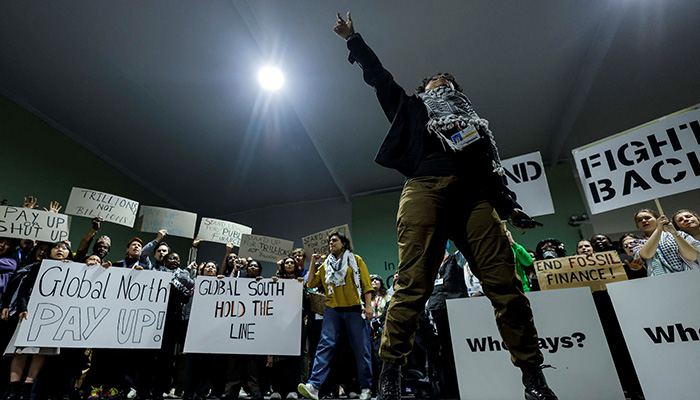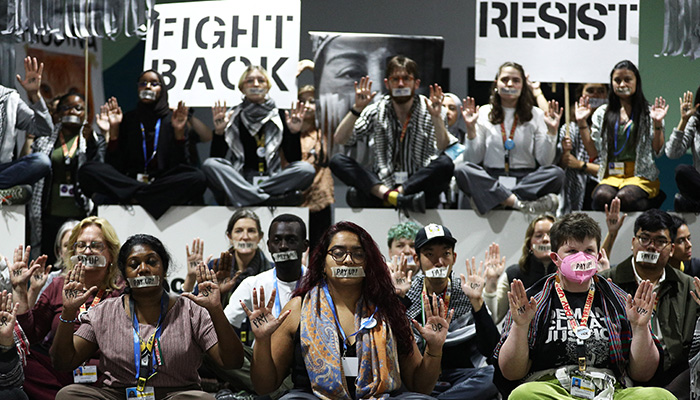
Rich countries raised their climate finance offer for poorer countries to $300 billion on Saturday in the COP29 negotiations, with doubts growing that all countries will walk away happy with the outcome.
Negotiators worked through the night in a sports stadium in the Caspian Sea city of Baku searching for a compromise as the two-week UN Climate Change Conference (COP29) continued for an extra day.
In a year expected to be the hottest on record, developing countries bearing the brunt of increasing drought and disasters flatly on Friday rejected an initial offer of $250 billion a year by 2035.
Multiple sources familiar with the negotiations said that the rich countries – which include the European Union, the United States, Britain and Japan – on Saturday raised the amount to $300 billion.
The revised offer from rich countries came with conditions on other parts of the broader climate agreement under discussion in Azerbaijan.
The European Union in particular wants to conduct an annual review of global efforts to phase out fossil fuels, which constitute the main driver of global warming.

This has been met with opposition from Saudi Arabia, which has sought to water down the historic pledge to transition away from oil, gas and coal made at the UN Climate Change Conference (COP28) last year.
“We will not allow the most vulnerable countries, especially small island states, to be plundered by the few rich countries that emit fossil fuels,” German Foreign Minister Annalena Baerbock said.
Irish Climate Minister Eamonn Ryan said he was “optimistic” that an agreement would be reached, but a clearer picture would emerge later in the day when a new text was expected to be issued.
Ryan said Agence France-Presse Developing countries need money, “but we must also put an end to the advance of fossil fuels.”
A coalition of more than 300 activist groups accused historic polluters largely responsible for climate change of evading their obligations, and urged developing countries to stand firm.
“You claim to defend a rules-based order, but you violate rules when they do not suit your interests, putting billions of people and life on Earth at risk,” the NGO wrote in an open letter.

Rich countries respond that it is politically unrealistic to expect more direct government funding.
The United States earlier this month elected former President Donald Trump, a climate change and foreign aid skeptic, and a number of other Western countries have seen a right-wing backlash against the green agenda.
The draft agreement assumes a larger overall target of $1.3 trillion annually to deal with rising temperatures and disasters, but most of it will come from private sources.
Even $250 billion would be an increase from the $100 billion that rich countries have now provided under a commitment that is set to expire.
A group of developing countries had requested at least $500 billion, and some said the increases were less than meets the eye due to inflation.
Experts commissioned by the United Nations to assess the needs of developing countries said that the amount of $250 billion is “very low” and that by 2035, rich countries must provide at least $390 billion.

Brazil, which will host the UN Climate Change Conference (COP30) next year, has embraced that figure, saying the $390 billion should fall to the wealthiest countries alone.
The United States and the European Union were willing to engage newly wealthy emerging economies such as China – the world’s largest emitter – in this area.
China, which is still classified as a developing country under the UN framework, provides climate aid but wants to continue doing so on its own voluntary terms.
While China generally took a calm and cooperative stance in Baku, oil-rich Saudi Arabia pushed hard for weaker language on fossil fuels and, like China, fought against being obligated to provide aid, a veteran activist from a developing country said. He said.
Azerbaijan, an authoritarian country dependent on oil and gas exports, has been accused of lacking the experience and ability to guide such complex negotiations.
Its leader, Ilham Aliyev, opened the conference by attacking Western countries and praising fossil fuels as a “gift from God.”
